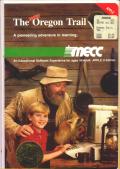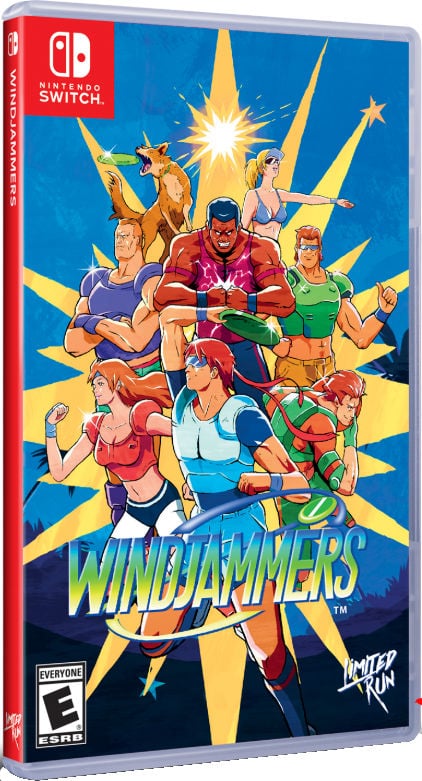Oregon Trail Ii Emulator

Oregon Trail II is a sequel to Oregon Trail.The game follows the basic structure of the predecessor, which is a simulation of traveling through towns and wilderness in the state of Oregon, with adventure-like gameplay elements and educational material. Released in 1995, Oregon Trail 2 was not actually the second game in the series as there had been many versions of the original Oregon Trail released before this. Oregon Train 2 made use of “powerful CD Rom technology” which was the big thing at the time. Go Where You Want To Go. While this is called the Oregon Train 2, you are not just.
The Oregon TrailCreator(s)Don Rawitsch, Bill Heinemann, Paul DillenbergerFirst releaseDecember 3, 1971Latest releaseDecember 6, 2011The Oregon Trail is a series of educational computer games. Was originally developed by Don Rawitsch, Bill Heinemann, and Paul Dillenberger in 1971 and produced by the (MECC) in 1974. The original game was designed to teach school children about the realities of 19th-century life on the. The player assumes the role of a wagon leader guiding a party of settlers from, to 's via a in 1848.
Contents.History In 1971, Don Rawitsch, a senior at in, taught an 8th grade history class as a student teacher. He used running on an to write a computer program to help teach the subject.
Rawitsch recruited two friends and fellow student teachers, Paul Dillenberger and Bill Heinemann, to help.These are the original core gameplay concepts which have endured in every subsequent version: initial supply purchase; occasional food hunting; occasional supply purchase at forts; inventory management of supplies; variable travel speed depending upon conditions; frequent misfortunes; and upon death or successfully reaching Oregon.The game that would be later named The Oregon Trail debuted to Rawitsch's class on December 3, 1971. Although the minicomputer's and paper tape terminals that predate display screens were awkward to children, the game was immediately popular, and he made it available to users of the minicomputer network owned. When the next semester ended, Rawitsch printed out a copy of the and deleted it from the minicomputer. MECC In 1974, the (MECC), a state-funded organization that developed for the classroom, hired Rawitsch.
He uploaded the game into the organization's time-sharing network by retyping it, copied from a printout of the 1971 BASIC code. Then he modified the frequency and details of the random events that occurred in the game, to more accurately reflect the accounts he had read in the historical diaries of people who had traveled the trail. In 1975, when his updates were finished, he made the game titled OREGON available to all the schools on the timeshare network. The game became one of the network's most popular programs, with thousands of players monthly.Rawitsch published the source code of The Oregon Trail, written in 3.1 for the, in 's May–June 1978 issue. That year MECC began encouraging schools to adopt the microcomputer.
John Cook adapted the game for the Apple II, and it appeared on PDS Disk series No. A further version called Oregon Trail 2 was adapted in June 1978 by J.P. The game was further released as part of MECC's Elementary series, on Elementary Volume 6 in 1980. The game was titled simply Oregon, and featured minimal graphics. It proved so popular that it was, with substantially improved graphics, in 1985.
The new version was also updated to more accurately reflect the real Oregon Trail, incorporating notable geographic landmarks as well as human characters with whom the player can interact.By 1995, The Oregon Trail comprised about one-third of MECC's $30 million in annual revenue. An updated version, Oregon Trail Deluxe, was released for DOS and Macintosh in 1992, as well as Windows in 1993 (under the title of simply The Oregon Trail Version 1.2) followed by in 1995, The Oregon Trail 3rd Edition in 1997, and 4th and 5th editions. As of 2011, more than 65 million copies of The Oregon Trail have been sold. Lipinski, Jed (July 29, 2013). Archived from on July 31, 2013. Retrieved July 31, 2013. Shea, Jeremy (February 24, 2014).
Incredibly fun and intensely addictive, Windjammers is the adrenaline rush you’re looking for!.  5 game modes: ARCADE, INFINITE, LOCAL VERSUS, ONLINE QUICK MATCH, & RANKED MATCH. Windjammers is a fast-paced head-to-head arcade game where two players face off on a court, and throw discs at the opponent's goal zone to score points. Online Versus: for the first time ever, face other players worldwide in ranked matches and compete in the top leagues!.
5 game modes: ARCADE, INFINITE, LOCAL VERSUS, ONLINE QUICK MATCH, & RANKED MATCH. Windjammers is a fast-paced head-to-head arcade game where two players face off on a court, and throw discs at the opponent's goal zone to score points. Online Versus: for the first time ever, face other players worldwide in ranked matches and compete in the top leagues!.
Yester: Then For Now. Retrieved August 29, 2015. Veeneman, Dan. Retrieved April 22, 2011. ^ Lussenhop, Jessica (January 19, 2011). Archived from on January 23, 2011. Retrieved January 20, 2011.

^ Bouchard, R. Philip (June 29, 2017). The Philipendium. Retrieved August 5, 2019. Grosvenor, Emily (September 25, 2014). Retrieved September 25, 2014. Rawitsch, Dan (May–June 1978).
Creative Computing. Retrieved January 22, 2015. Retrieved October 13, 2017., University of Minnesota, Minneapolis (accessed July 1, 2012). March 4, 2016, at the. Retrieved November 7, 2019.
Retrieved November 7, 2019. Retrieved November 7, 2019. Coventry, Joshua. Archived from on June 28, 2007. Retrieved June 12, 2007. (1986). Microsoft Press.
Stacy Conradt (May 11, 2009). Mental floss. Archived from on November 2, 2014.
Retrieved March 6, 2013. Ericson, Tracy. Archived from on November 2, 2014. Retrieved October 10, 2008. Beidler, Aurae (January 31, 2008), Facebook Oregon Trail Application: Social Networking Website's Version of the Original Educational Game, Suite 101. Buchanan, Levi (February 25, 2009). Archived from on November 2, 2014.
Retrieved February 27, 2009. Alaburda, Bob (March 11, 2009). Archived from on March 14, 2009. Retrieved August 29, 2015. by Jimmy Maher on filfre.net (source code: and, March 27, 2011).
Jackson, A. Diallo (January 28, 2011). Archived from on November 2, 2014. Retrieved November 2, 2014. Osborne, Joe (December 19, 2011). Games.com news. Archived from on November 2, 2014.
Retrieved June 22, 2013. Retrieved January 31, 2020. Archived from on November 2, 2014. Retrieved November 2, 2014.
Retrieved November 19, 2014. Archived from on July 16, 2015. Krol, Jacob (July 29, 2016).
Retrieved December 12, 2016.External links. at.